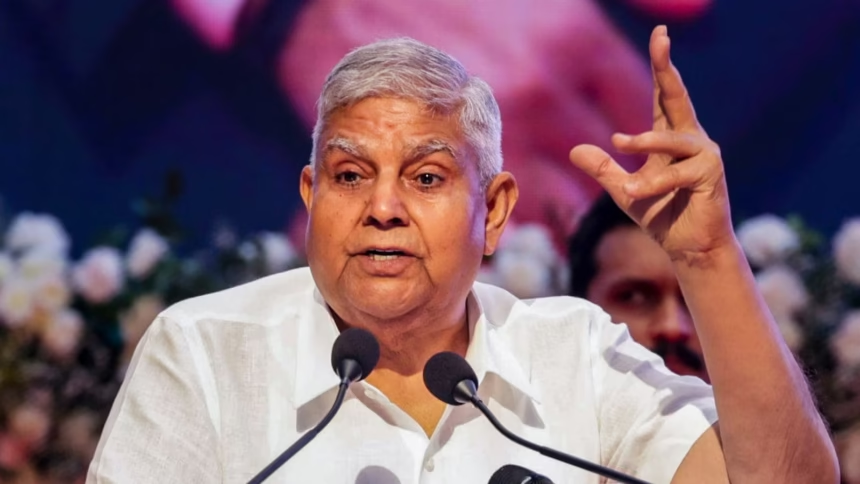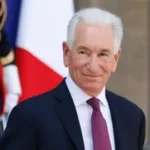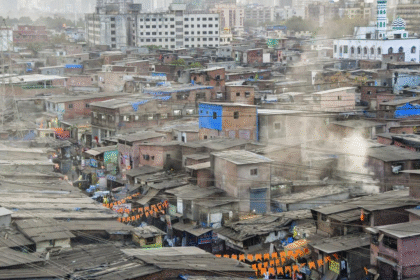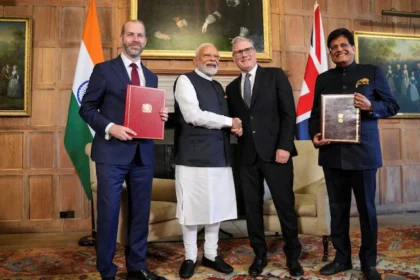Vice President Dhankhar’s Silent Exit Triggers Alarming Questions on Institutional Transparency
On July 21, 2025, we met Jagdeep Dhankhar in the Rajya Sabha and found him in his usual spirit. The sudden resignation of the vice president on the same day, citing health reasons, and his subsequent complete withdrawal from public life is a moment worth pausing over.
Health may indeed be a plausible concern, yet, it is not every day that the second-highest constitutional authority in the republic relinquishes office and disappears without any details or updates about his illness. Part of the unease comes from Dhankhar’s own record. His tenure as the governor of West Bengal and later as the vice president was anything but quiet. He has always been outspoken, confrontational and often accused of partisanship. His sudden muting stands out against this backdrop. For a figure so associated with presence and noise, the absence is conspicuous.
This is not crude curiosity about an individual’s private life. The well-being of the person occupying the second-highest constitutional office of the land is a matter of public interest.
In other democracies, when constitutional heads face health concerns, governments issue formal statements to avoid speculation and maintain trust. In India, however, opacity seems to have become the norm. The government cannot treat this as “business as usual.”
Transparency is not optional in a democracy – it is the cornerstone of accountability. To hide behind silence is to disrespect the people’s right to know and to weaken the dignity of the office itself.
Recent political history teaches us that “health grounds” are often a polite euphemism, masking deeper fissures – be the differences with the ruling establishment, controversies waiting to break, or ideological discomforts too sharp to reconcile. If indeed the vice president is recovering, a simple health bulletin would suffice to reassure the nation. Anything less is a disservice both to the office he held till very recently and to the citizens of the world’s largest democracy.
To brush such matters under the carpet is to deny the public the right to know why one of the highest guardians of the constitution has laid down his mantle. Without credible details, a cloud of doubt lingers – was this an honourable exit dictated by frailty, or was it a compelled retreat under political duress?
The nature of Dhankhar’s withdrawal highlights a crisis of legitimacy in institutions. In a parliamentary democracy, no constitutional office is ornamental and certainly not that of the vice president of India. If the resignation was purely for health reasons, let the nation be told candidly. If it was not, let the truth, however inconvenient, find the light of day.
Citizens deserve to know, at least in broad terms, whether their elected representatives and top constitutional office-bearers are in a position to discharge their duties. To treat such a disappearance casually is to normalise opacity, which weakens democratic culture.
Authority in high office is secured by legal provisions, but that is never enough. Democratic authority rests also on continuity and visible adherence to norms. Predictability in how leaders enter and leave public roles is part of what makes institutions trustworthy.
Credible and stable democracies have developed clear conventions to avoid such uncertainty. Some expect persons in highest offices to publish medical records and explain absences. In several countries, senior politicians hold press conferences announcing their decision to step aside, framing it as service to democratic renewal. Even in monarchies, abdications are carefully choreographed and narrated to citizens as part of a transparent process. These practices recognise that public offices are not private possessions, they are held in trust, and their holders owe clarity to the citizenry.
The absence of Dhankhar, and the silence around it, raises umpteen questions about the health of institutional culture itself. The most prominent ones being the one about power struggles within the establishment, about usefulness exhausted, or about disillusionment.
The vacuum of information is inevitably filled by rumours and speculation. In the absence of a clear account, competing perspectives on Dhankhar’s resignation took over the public and media narratives. None can be verified, but all have gained traction.
There is also a broader issue of civic ownership. Citizens are not spectators in a drama where exits and entrances can be scripted at will; they have a stake in running the democracy. When office-holders retreat without explanation, it implies that the relationship of accountability is only upwards, to political leadership, rather than outwards to the public. That inversion damages democratic culture more than any individual controversy.
This episode also points to the lack of a settled institutional culture, or much candid debate in India about the role of former high officials. Should they remain visible as elder statesmen, offering commentary and guidance? Or should they retreat, fully invisibilising themselves?
Different parties, and indeed individuals, may favour different approaches. The BJP, however, has displayed a marked preference for obscuring or muting its own leaders who, for some inexplicable reason, become expendable to the party – even when they once occupied prominent positions. What is missing is consistency. Some figures are quietly removed from the stage, while others insist on staying in place even after their mandate has run its course. This asymmetry matters because it signals that departures are not governed by established norms but by political convenience.
Whether Dhankhar is remembered as a combative figure who embodied the sharp edges of contemporary politics, or whether he fades from view altogether, will depend less on his own intent than on how his peers choose to deal with his muting and disappearance from the public sphere.
Silence leaves an unfillable gap in the historical record. Every unexplained departure becomes a precedent for future evasions.
Democracies depend not only on free elections but also on coherent narratives about how their institutions function. Without rational and believable explanation, the democratic story is fractured, and with it the trust of those who must continue to believe in the system.








